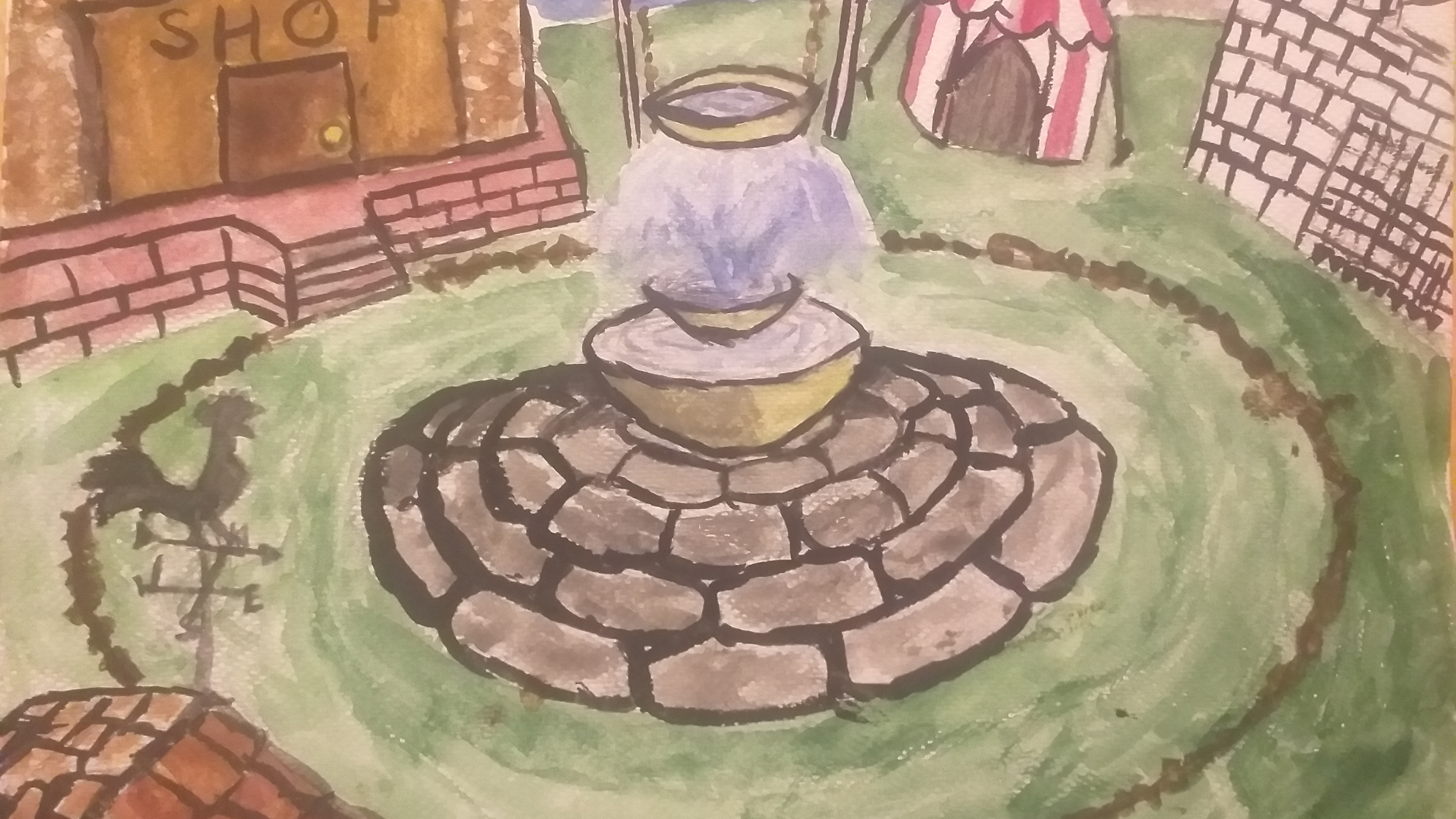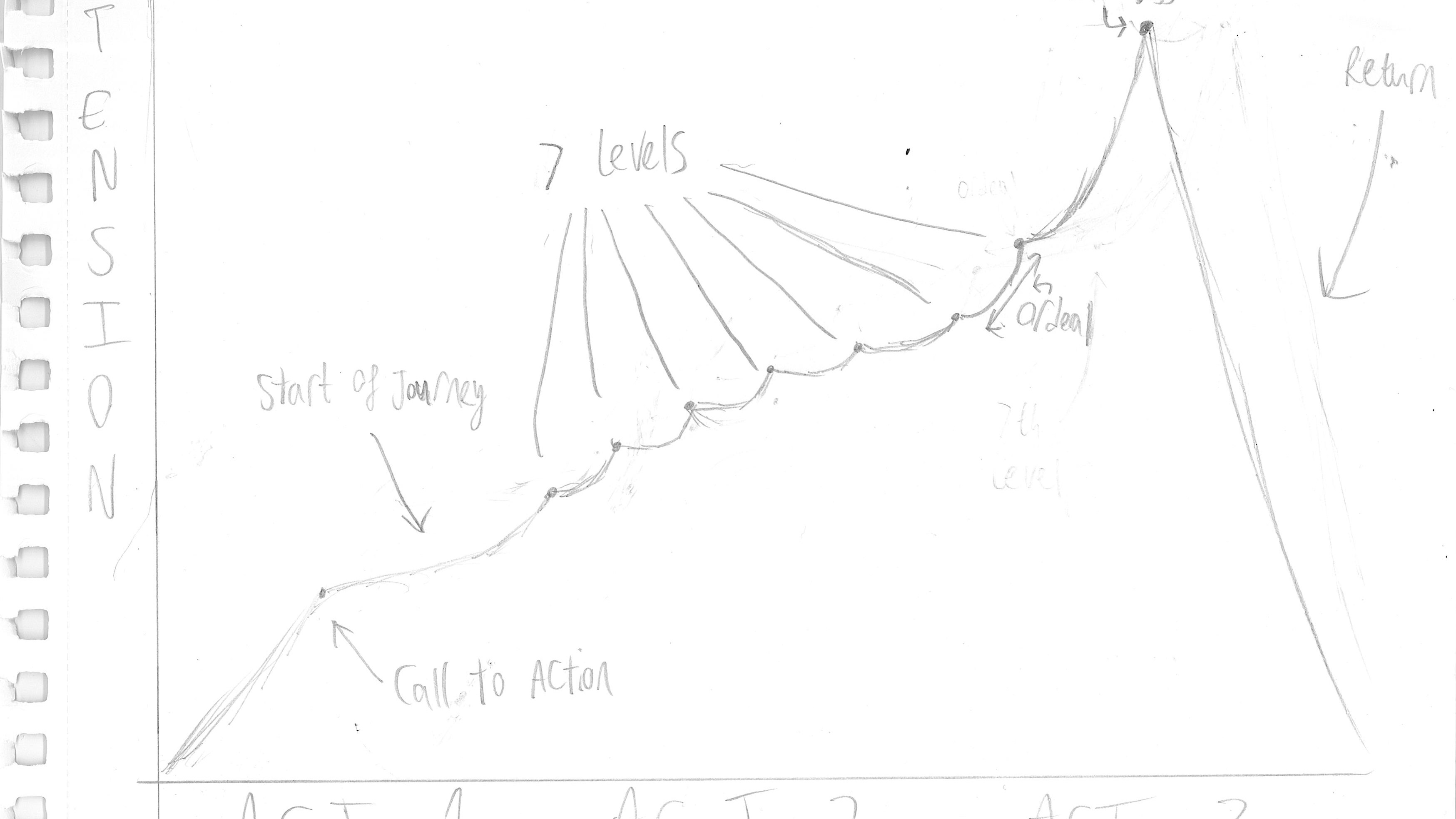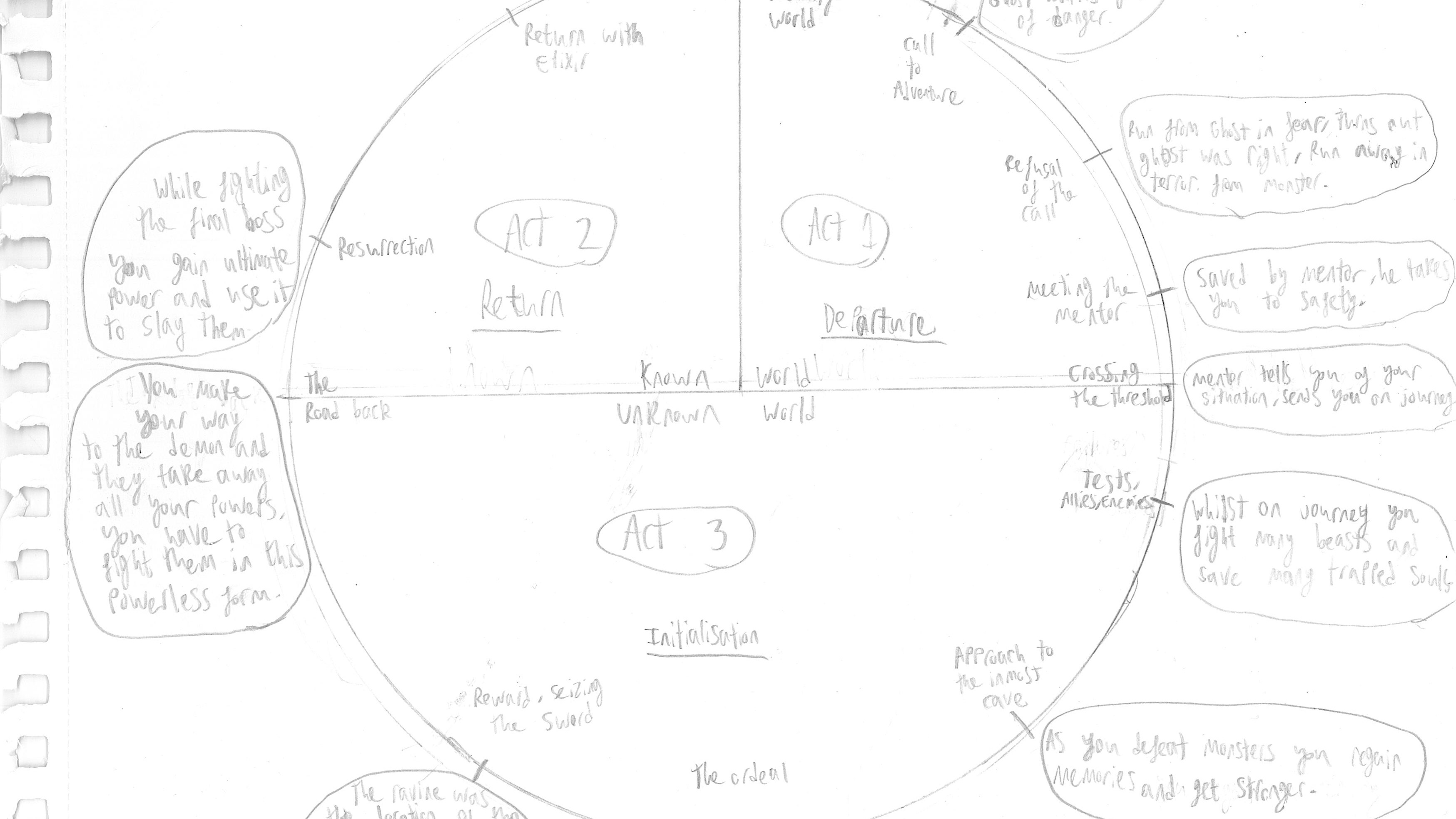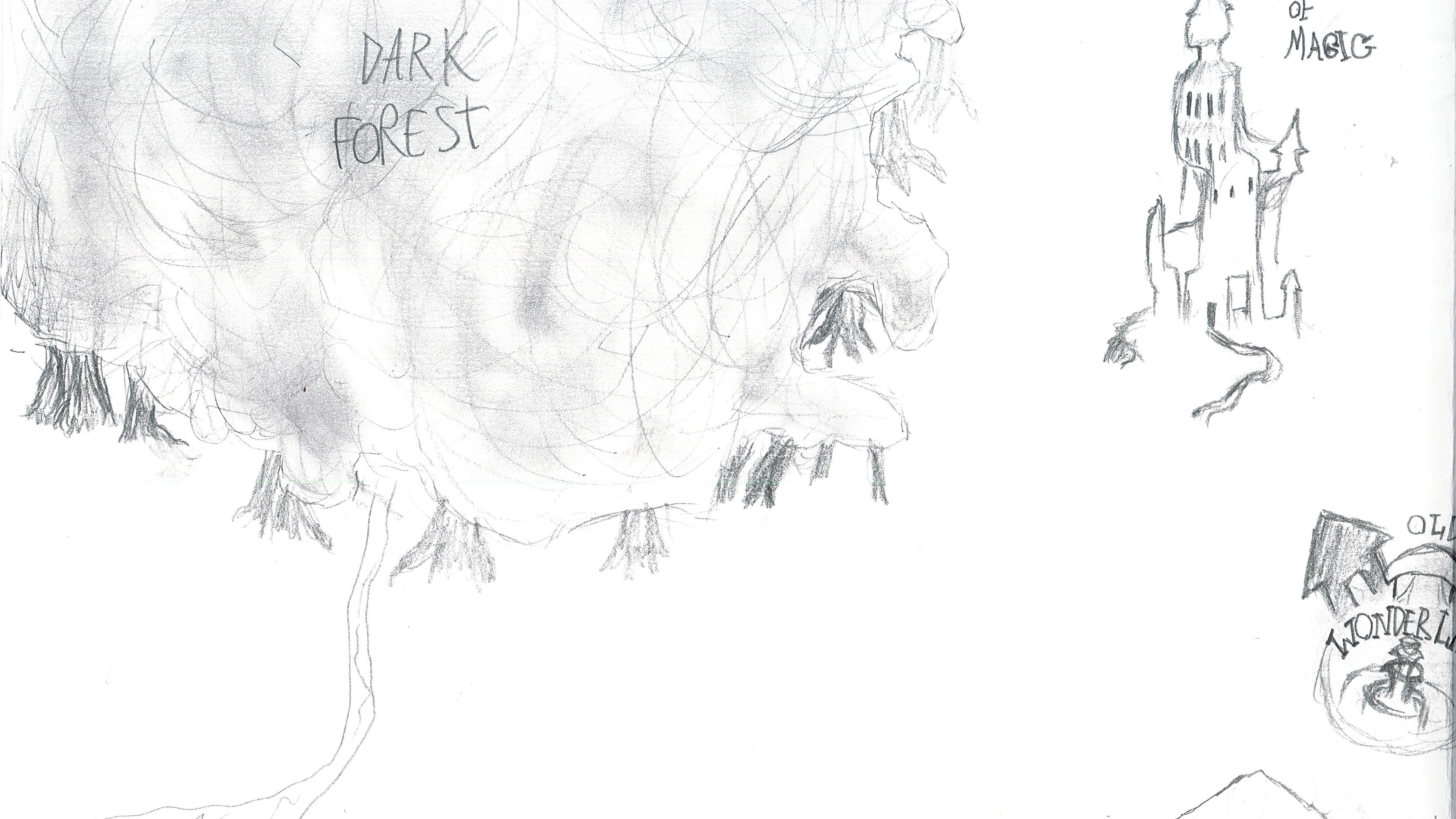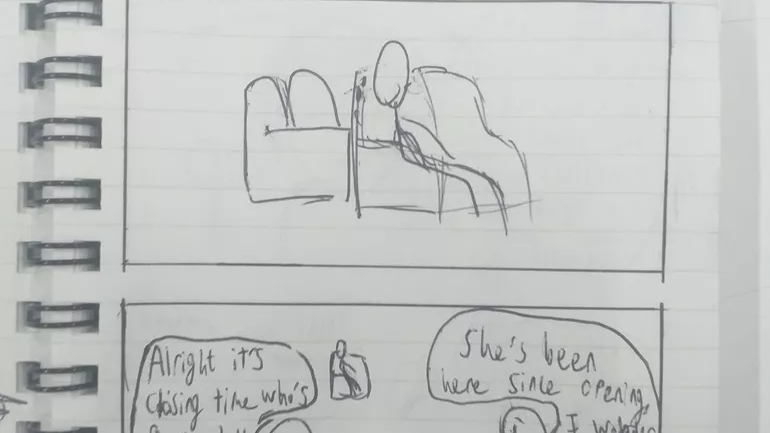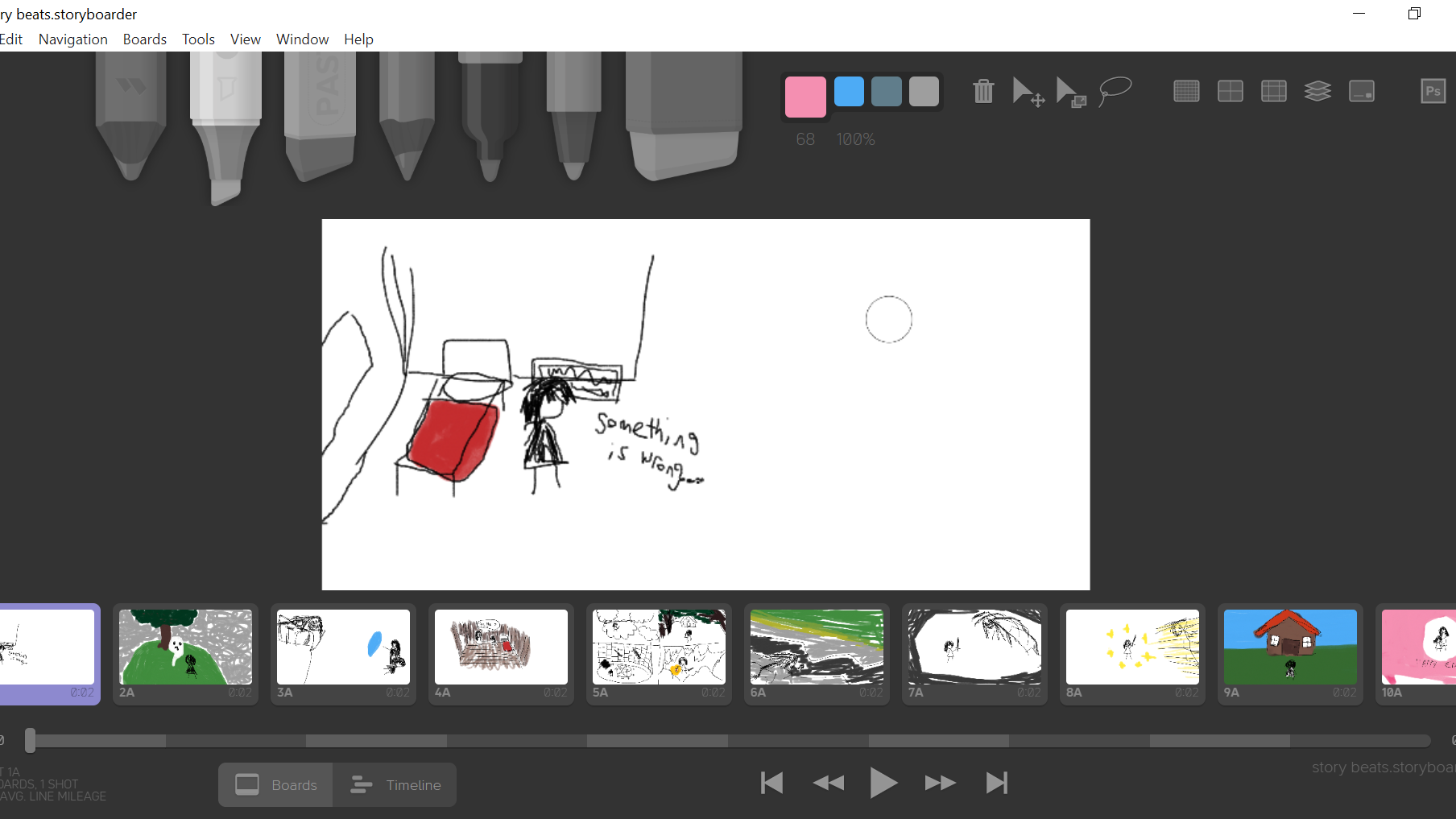Asteroids
It comes once a century, clad in rocky armour. The Fluxus virus.
A sentient virus that travels the cosmos, searching for life to infect and destroy. It once again has humanity in it's sights, defeated time and time again the virus has grown stronger. This time it will come with all it's might or perish once and for all.
The year is 2523. Humanity has advanced leaps and bounds and has finally taken to the stars. Every 100 years they must fight off waves of asteroids carrying a lethal and deadly virus, this year is the 5th century they have had to do this and after observing strange activity from incoming asteroids it seems like it will be a fight like never before.
Logline
Humanity wants to live life in peace and continue their prosperous advance into space, but they have been spotted by a deadly foe and theres only room for one of them in this universe.
SELF-DIRECTED - GAME REVIEW
Dragon's Dogma: Dark Arisen
For my Ludology vs Narratology review I chose to look at the game Dragon's Dogma: Dark Arisen. I thought that the game had a lot of gameplay and story elements that could be looked at.
Narratologists see games as an extension of any other narrative expression and often compare them with books and movies. They only examine the narrative in the game and not how the gameplay ties into it. They look at how the story is told and how well it is told.
Ludologists believe that games should be examined based on the systems they create, like game worlds and the rules of the game and events. They look at the way the story is told through the gameplay and not through dialogue or cutscenes.
In Dragons Dogma the story is told very well, this is made easier by the fact that it is a relatively simple plot.
The plot of Dragon's Dogma is the tale of a chosen warrior called the 'Arisen'. The arisen is born when a soul with the will to stand up against death challenges the dragon against all odds. The Dragon takes the heart of the arisen and sets him on the path to slay the dragon and retrieve his heart, the arisen is joined by immortal beings from another world called pawns, they can only be summoned and commanded by the arisen. The narrative seems simple enough but there is more to it, a deeper layer.
On his journey to face the dragon the arisen finds many other's who have fought the dragon, all of which seem to either no recollection of their encounter or advice the arisen to take the dragon's deal. When the arisen eventually confronts the dragon the dragon gives him a deal, to sacrifice your most loved one and leave with your life or to fight the dragon. Those who have come before have either fought the dragon and lost or taken this deal, both are punished with eternal life. When the Arisen defeats the dragon all of those who failed their duty regain all the age they had lost and perish, and an abyss opens up in the center of the city. The arisen is then given another mission, to gather up 20 wakestones, stones with the ability to revive the player and bring them to the abyss and once again stand up against a greater foe, this time the being behind the cycle of arisen and dragon called the 'Seneschal'.
He is essentially God, and he tells the player that the purpose of the dragon was to find strong willed souls to eventually replace him, when the player defeats him he imparts all his knowledge to the player and asks that you end his life and free him from the pain of eternity. Once the player does this the player has 2 choices, to quit the game or to kill themselves, which leads you to an ending cutscene.
The game is an amazing story about the ending of a constant cycle and really hits the player hard after a long journey.
The story in this game is mostly told through narratology as there is quite alot of cutscenes and dialogue that is used to tell you what you need to know. But the use of ludology in the game is amazing. The game gives YOU, the player, the choice to choose your path. YOU choose whether to take the dragon's deal and sacrifice your love or to fight the dragon, YOU choose whether to take certain paths and roads in the game, YOU choose to either fight the Seneschal or to return home (which instead leads to you becoming the dragon and restarting the cycle of seeking out strong souls to take the Seneschal's place) and last of all, YOU choose to spend eternity in the endless void watching over mankind or to end the cycle once and for all. The amount of choice the game gives you allows you to appreciate the game fully, it makes you the hero not just somebody controlling the hero down a path that is on rails.
To conclude, Dragon's Dogma uses and excellent combination of Narratology and Ludology, through the use of Narratology to give the player a choice and through the use of Ludology to let the player choose what they want to choose and how they want the story to progress.
REFLECTION
In this lecture we looked at old atari games and from the gameplay we were tasked with creating a short story premise and log line for them, we learned to develop very simple narrative starting points using log lines.
I was late to the lecture so I missed the atari games but when I got to lesson I heard the task and got started. I asked a classmate what atari games we could use and heard that asteroid was part of it so I decided to use asteroid for my story as I like space stories and feel there is alot you can do with them.
The lecture was very small and after we finished that task we were free to do what we wanted, at the end of the lecture we were tasked with writing a review of Ludology and Narratology in a game, so when I got home I decided to do a review on Dragon's Dogma: Dark Arisen.
The uses of Ludology and Narratology in Dragon's Dogma is plentiful so I enjoyed reviewing it. Looking at it like this really made me appreciate how well done the story telling in that game was and how well it allows the player to interact with it.
To conclude, by reviewing the uses of Ludology and Narratology in Dragon's Dogma I further understand how important it is to do both without neglecting either.
In the future I will keep in mind the importance of Ludology and Narratology in my game premise and when designing and writing for games.
